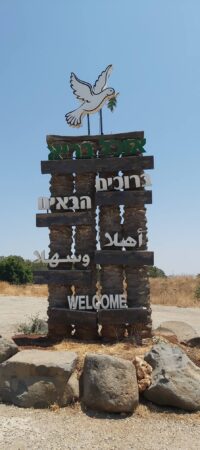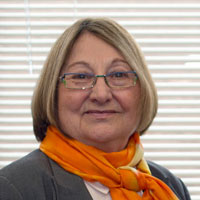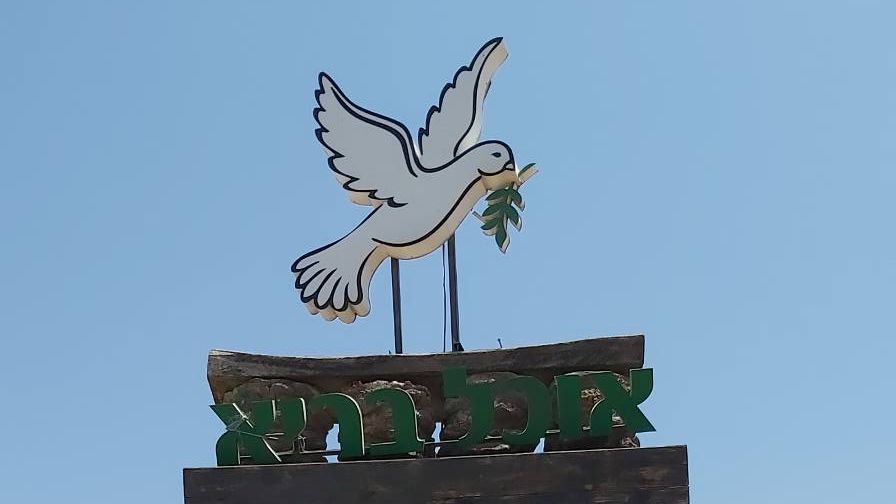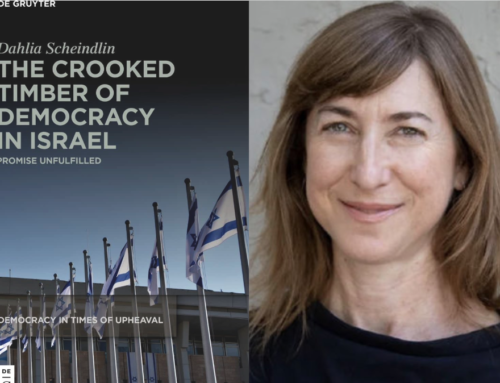Between Diaspora and Homeland
by Peter Eisenstadt and Ayala Emmett
In 2021, the United States ended four years of an autocratic President and Israel just formed a coalition that ousted a similarly autocratic PM. Much has been made of the similarity and affinity between the two, yet this discussion is not a rehashing of the rise and fall of these leaders. Rather, what is most striking is that almost ninety percent of the Jews in the world are now living in Israel and the United States and that both countries have played a major role in changing Jewish history almost beyond recognition.
The history of the Jewish diaspora, as it existed for two millennia, is no more. The Jews are no longer spread out across the nations. The Jewish presence in Eastern Europe and in the Middle East (with the notable exception of Israel) is vestigial. Jews in the United States are the large remaining example of the Jewish diaspora, yet with unprecedented cultural, social, and political participation. American Jews embraced English as their language, they no longer are seriously concerned about fitting in and do not have to worry about legal, cultural, or economic barriers to their full citizenship. While the United States, in 2021, is far from a paradise of inclusion, it is hard to deny that it has been good for the Jews in a way that has never existed before in the history of Jewish diaspora.

Photo credit: Sharona Langerman
Israel is another matter. Jews created their own culture, their own politics, their own country. And in many ways it has been quite successful. But it has the opposite problem of diaspora countries. Rather than having the historic problems of being a powerless minority, Israel’s Jews have the problem of being a powerful majority, with a large and unassimilated minority. And this is another remarkable change to the Jewish people over the past century that the fates of the Jewish people and the Palestinians have become entwined and inseparable. In Israel, there is no longer a “Jewish people” that can be separated or isolated from a “Palestinian people.” And that means, for the Jewish people as a whole, our fates are connected to the future of the Palestinians.
Recognizing this new reality is not about politics, or retracing a sorry and complex history, or pointing fingers at who did what to whom. It is merely stating a fact. Israel governs Israeli Palestinians, and non-citizen Palestinians in Israel proper, in East Jerusalem, the West Bank, and Gaza, though the amount of direct Israeli controls differs in these regions. One thing is clear, the Jewish people and the Palestinian people are going to live next to each other and with each other, barring an unimaginable catastrophe, forever. We understand as well that this is not what either people would have wanted, but again, this is just stating a fact. It is time for both peoples to recognize this, and accept it not only as a challenging reality but as a time for innovative possibilities.
With some exceptions, Jews and Palestinian keep their interactions to a minimum. There certainly are some contrary trends; a growing class of Hebrew fluent-Palestinians, educated in Israeli universities, the growing number of Israeli Palestinians in many professions and most prominently in medicine. And politically the new and unique phenomena of an Arab party in the current Israeli government. Yet the gap between Jews and Palestinians is growing ever wider and it was so vivid and visible in the latest clashes that took place in mixed cities like Haifa, Jaffa and Acre.
If a proposal for a joint Jewish and Palestinian people sounds absurd, let us look to the history of the United States. The last thing that the British, French, Dutch, and Spanish colonizers thought when they conquered the land that became the United States, when they displaced and murdered the land’s native inhabitants, when they enslaved Africans to work the land, was that they were laying the foundation for the creation of an American people. The last thing the white men thought they were doing when they wrote a document that claimed “all men are created equal” was writing a document that would one day include women Blacks and Asians or that they were creating a country that didn’t entirely belong to them. But that is just what they did. Of course it would take centuries to even begin to work these things out, for the oppressed to stand up to their oppressors, but this is what happened, and this is how America was founded, as a work in progress, and to this day, its highest aspirations always hindered by its baser realities. The African American poet Langston Hughes memorably put it in these words:
O, yes,
I say it plain,
America was never America to me,
And yet I swear this oath—
America will be!
Israel has a similar history of a work in progress, though there are significant differences between the history of the United States and Israel. Zionism was not, in its origins, a movement that had as it main purpose the subjugation of a foreign people and lacked the military power to do so.
But in the end the result was the same. Jews forced themselves on the Palestinians, the result was warfare and displacement, a dominant population and subordinate population. And, as in the United States, there is only one real solution, the recognition that the two people will have to treat each other as fully equal and as full equals. All analogies are imperfect, and there are real differences between the situation of the United States and Israel. There are, as we know, various proposals for how to end the long-standing conflict, with two states, one state, a confederation, and myriad other ideas. But perhaps, with half the Jewish people living in the US we could draw on this experience to think differently with a much longer time horizon. When Zionists created a Jewish State, they also created something larger than the Jewish state, an area in which two peoples will forever share the same land, and it is this larger state, or states, in which the future of the Jewish and Palestinian peoples will be shaped.
The idea of an inevitable shared future is not an entirely unprecedented proposition. It was the position of a notable list of prominent Zionist leaders, like Martin Buber, Gershom Scholem, Henrietta Szold, and Hugo Bergam, the founders of Brit Shalom the Jewish–Palestinian Peace Alliance. It was Martin Buber who called for Jewish Arab/Palestinian coexistence in the Zionist Congress in 1921. For Buber the Zionist project “turns with horror against the methods of a domineering nationalism.” He saw a Jewish Palestinian future of “mutual respect and mutual good will” that would shape a bi-national state. In 1930 Arthur Rupin wrote, “In the foundations of Brit Shalom one of the determining factors was that the Zionist aim has no equal example in history. The aim is to bring the Jews as second nation into a country which already is settled as a nation – and fulfill this through peaceful means. History has seen such penetration by one nation into a strange land only by conquest, but it has never occurred that a nation will freely agree that another nation should come and demand full equality of rights and national autonomy at its side. The uniqueness of this case prevents its being, in my opinion, dealt with in conventional political-legal terms. It requires special contemplation and study.”
A decade later, n the 1940s there was another different, short lived “Canaanite” movement, whose advocates said that Jews in Palestine were creating a new civilization unconnected to the Jews in the diaspora. One could even argue that Jewish Israel understood that they were joined at the hip with Palestinians in 1948, when they wrote it into the Declaration of Independence proclaiming that the new state “will foster the development of the country for the benefit of all its inhabitants; it will be based on freedom, justice and peace as envisaged by the prophets of Israel; it will ensure complete equality of social and political rights to all its inhabitants irrespective of religion, race or sex; it will guarantee freedom of religion, conscience, language, education and culture; it will safeguard the Holy Places of all religions; and it will be faithful to the principles of the Charter of the United Nations.” Clearly a number of Zionists saw from the beginning that any effort to create a distinct Jewish civilization in Israel that did not give the Palestinians equality was bound to fail by the weight of its contradictions.
We do not think of this as a political proposal so much as a conceptual one. Of course, Israel has to revoke the nation-state law, and eliminate everything in its laws and its social practices that treat Palestinians as second-class citizens. And the non-citizen Palestinians under Israeli control have to have their status rectified and clarified. That is political. But we don’t think that will happen until the Jewish and the Palestinian people really envision a shared future. And this means learning each other’s language, understanding their respective religions, cultures, respecting differences and building on commonalities. Israeli Jews and the Palestinians will have to put ideas of a future together into practice. They must learn to not just eat in the same restaurants but cook together life-sustaining realities. And for American Jews it means we must learn to think of Israel as not merely a Jewish state, but a homeland for two peoples, and the Palestinians as linked to the Jews. Learning about the Palestinians needs to be a central part of Jewish education in the United States.
The creation of Israel has changed the Jewish people in countless ways, but perhaps the most important way is the one most Jews, both in Israel and the United States, least like to think about, the new, permanent connection between the Jewish and Palestinian peoples. The time is past when Jews think of the Palestinians as a problem, as something to be solved by deft negotiators. And the Palestinians have a different but related challenge. But both the oppressors and the oppressed have to bring themselves to a place of equality. Both peoples will have to find a way, while retaining their separate identities, to embrace the other as themselves, for both peoples to see themselves both as hosts and strangers, living at home and at the same time, living as guests in someone else’s house. There are many potential political ways forward, but if any will have even a modicum of success, it will require a rethinking of what it means to be a Jew and what it means to be a Palestinian.
Is it possible for us to think anew of homeland? An unimaginable change of the Jewish world from a diaspora of oppressed minorities to political dominance in Israel and full citizenship and political participation for Jews in the US offer a liberating moment to reimagine old/new ideas of homeland. This new historic political power must be used for good; it must infuse Israel’s Declaration of Independence with the reality of a joined future in which both Jews and Palestinians, in the words of Torah, choose life.
—

Ayala Emmett is Professor Emeritus of Anthropology at the University of Rochester. Born in Tel Aviv, she grew up in a religious socialist Zionist community in Israel, and served in the Israeli army.

Peter Eisenstadt is a member of the board of Partners for Progressive Israel.







Leave A Comment